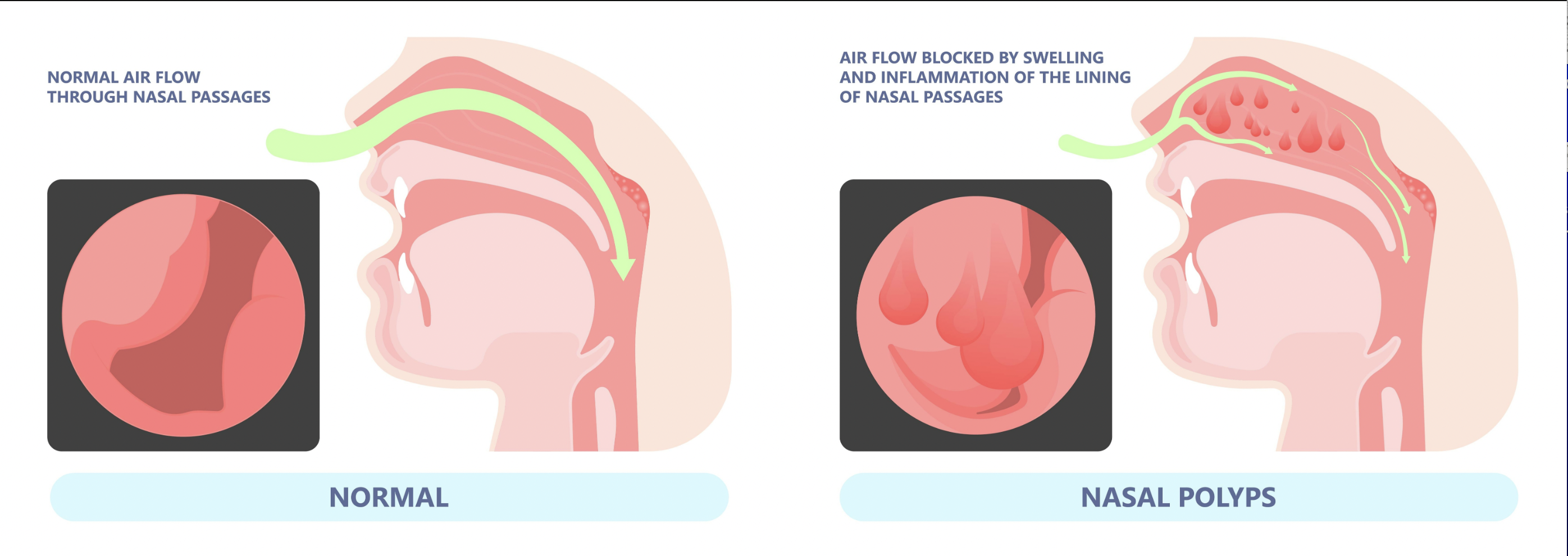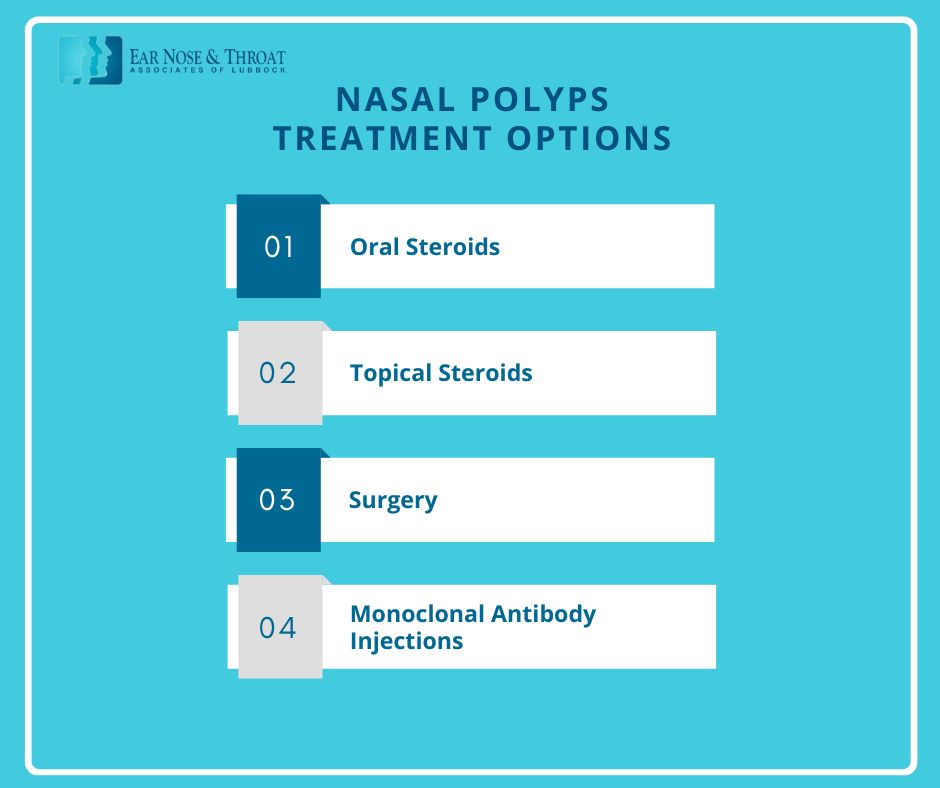4 Nasal Polyps Treatment Options and How They Work

If you know or suspect you have nasal polyps, you’re probably familiar with chronic nasal congestion and difficulty breathing. Add to that the facial pressure, difficulty smelling, and recurrent sinus infections, and many people are desperate for an effective nasal polyps treatment.
In this post, we’ll take a look at what nasal polyps are, why they happen, and four of the best nasal polyps treatment options available.
What Are Nasal Polyps?
Nasal polyps can form in the nasal passages or the sinuses and block airflow through the nose. They most commonly form when an allergic response in the nose causes an overgrowth of the nasal mucosa, or nasal lining. The swollen lining then fills with fluid, and pressure from this fluid causes the polyp to herniate out into the nasal cavity like a tiny, drooping water balloon.
Thankfully, nasal polyps are almost never cancerous; they simply make life miserable.

Unfortunately, we don’t know why some people get nasal polyps and some don’t. Certain individuals just seem to be more prone to them than others.
Nasal polyps can develop from a number of different factors. A few of the more common associations include:
- Allergies
- Asthma
- Sensitivity to nonsteroidal anti-inflammatory drugs (NSAIDs) like naproxen and ibuprofen
- Samter’s triad, a chronic condition that includes aspirin sensitivity, asthma, and nasal polyps
- Cystic fibrosis
Nasal Polyps Treatment Options
For something so small, nasal polyps cause some significant symptoms. Because of how much they affect a person’s breathing and cause sinus infections, nasal polyps need treatment.
Fortunately, there are several helpful nasal polyps treatment options available.

Nasal Polyps Treatment #1: Oral Steroids
Nasal polyps respond well to oral steroids, which can produce a substantial improvement in the polyps’ size and symptoms. The main problem with oral steroids is that extended use can cause some significant side effects, including mood changes, high blood pressure, glaucoma, cataracts, osteoporosis, weight gain, and diabetes.
So despite their effectiveness, steroids aren’t a long-term fix for chronic nasal polyps.
Nasal Polyps Treatment #2: Topical Steroids
Topical steroids can serve as an additional or alternative treatment to oral steroids. Topical steroid sprays like Nasacort and Flonase control inflammation in the nasal lining caused by asthma and allergies. Decreasing that inflammation also helps decrease the size of nasal polyps.
Your allergist or ENT doctor may even add a topical steroid to a saline sinus rinse so the steroids can wash through your nasal passages more thoroughly.
These medications may help shrink nasal polyps or slow their growth. They may not be as effective with larger polyps, however.
Nasal Polyps Treatment #3: Surgery
Surgery isn’t the first line of treatment for nasal polyps. As with other conditions, we always start with medical treatment first before proceeding to surgery. That said, almost everyone with significant nasal polyps will eventually end up needing endoscopic sinus surgery.
Most endoscopic sinus surgeries are performed in an outpatient surgical center under general anesthesia. The ENT surgeon uses an endoscope, a thin tube with a tiny camera and light, to see into your nose and sinuses and delicately remove any polyps from your nasal passages using small instruments. Often, the surgeon will also open up your sinuses to let air flow more freely in those spaces as well.
During surgery, some surgeons place small drug-eluting stents into the sinus cavities. As the stents dissolve over the next month or two, they release a small amount of steroids into the nasal passages to prevent nasal polyps from reforming.
Because endoscopic sinus surgery opens the nasal passages and sinuses, topical steroid sprays and steroid sinus rinses can reach much more of your nasal lining for a more thoroughly wash. This allows the medications to do a better job of preventing new nasal polyps from forming.
Nasal Polyps Treatment #4: Monoclonal Antibody Injections
Since the COVID-19 pandemic, more people are familiar with the concept of monoclonal antibody treatment. Some monoclonal antibody treatments, such as Dupixent, specifically target the inflammatory markers that cause nasal polyp formation.
Monoclonal antibodies are remarkably effective for nasal polyps treatment, causing polyps to just disappear. These treatments come in the form of injections, which means you have to give yourself a shot every two weeks. The main drawback of monoclonal antibodies for nasal polyps is that the polyps can start to come back as soon as you stop treatment.
Conclusion
Nasal polyps can make breathing — and life — miserable. If you suspect you have nasal polyps, we suggest visiting an ENT office to find out for sure what’s causing your symptoms. If nasal polyps are the culprit, your ENT doctor will be able to recommend the treatment that best fits your situation.
Dr. Cuthbertson is a physician at Ear Nose & Throat Associates of Lubbock. He joined the team at ENT Lubbock from Houston, where he was chief resident of the prestigious Bobby R. Alford Department of Otolaryngology at Baylor College of Medicine. He is board certified in Otolaryngology and Head & Neck Surgery and has quickly built a reputation, not only as an extremely skilled surgeon, but as an approachable and compassionate clinician adept in the newest standards and technologies. Learn more about Dr. Cuthbertson.
Categories:








